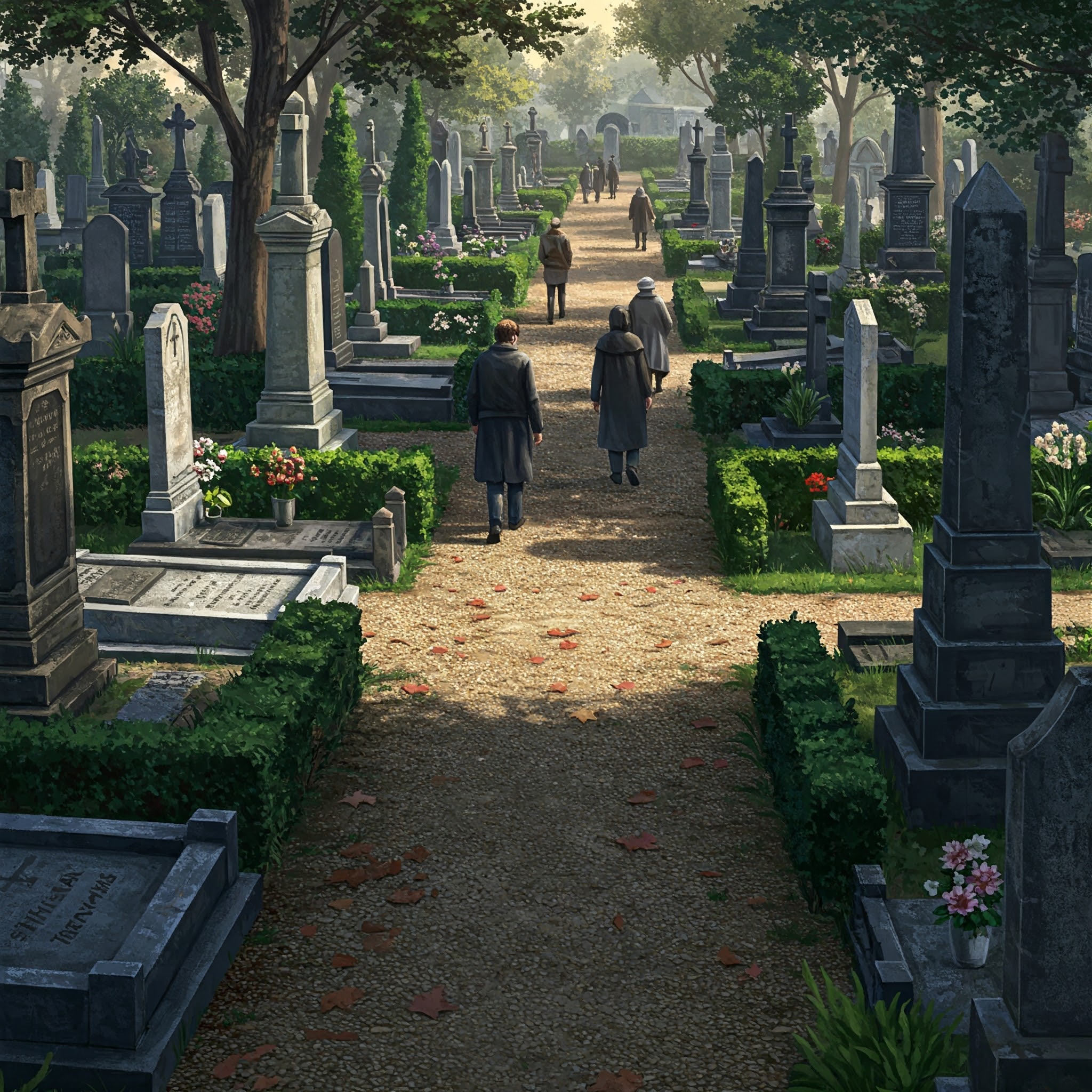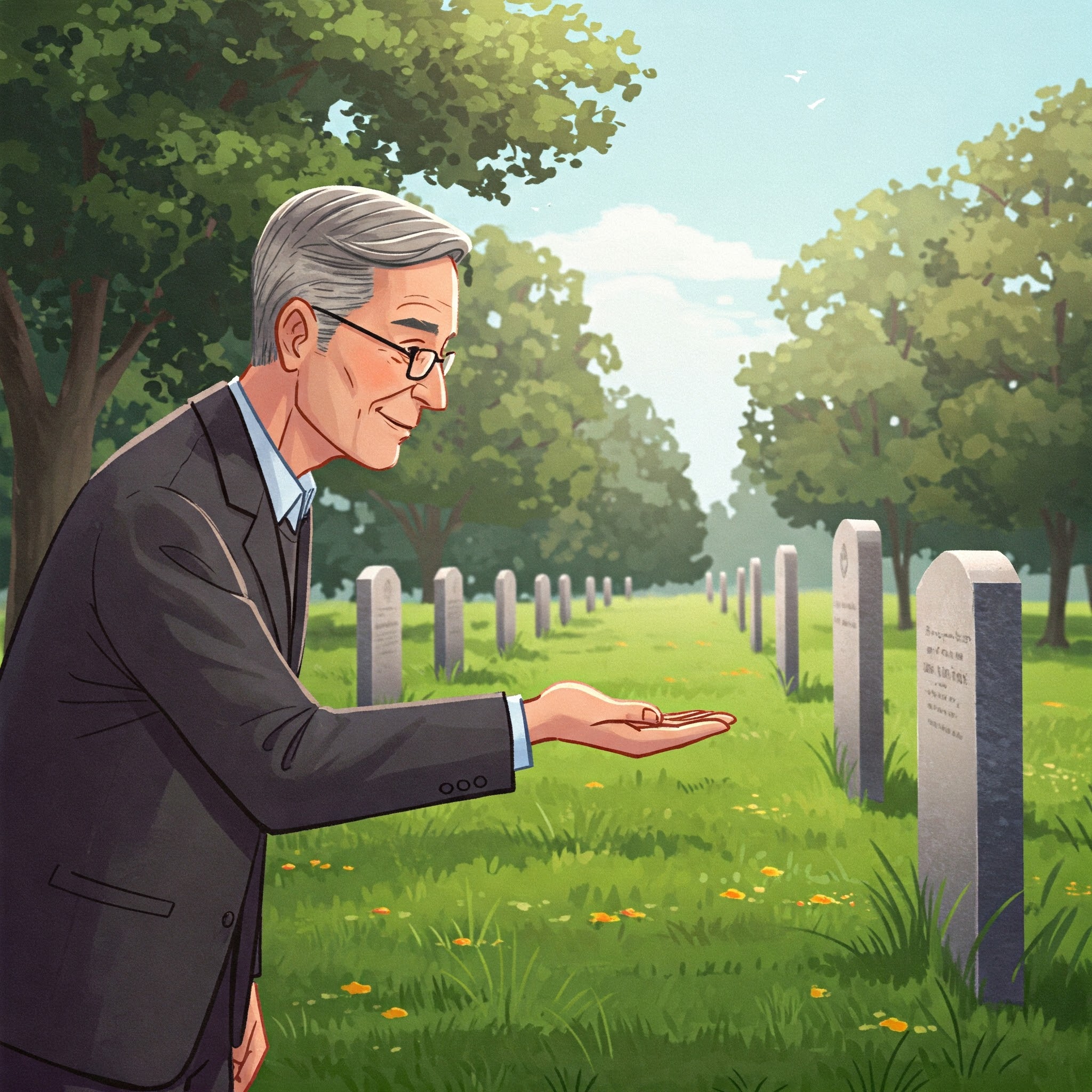According to widespread folk belief across multiple cultures, a dog’s prolonged, mournful howling during nighttime hours—especially when unprovoked and aimed at a particular household—is seen as a supernatural warning of impending death for someone within. The belief holds that dogs, due to their heightened senses and spiritual sensitivity, can detect the presence of spirits or sense the nearness of death before humans can. Some traditions enhance this interpretation based on contextual factors: if the howling occurs under a full moon, near a cemetery, or if several dogs howl in unison, the omen is considered more severe. Additional signs such as a dog digging near a threshold, howling while staring into an empty corner, or refusing to enter a room may reinforce the prediction.
Death and Afterlife Superstitions
According to widespread folk belief in Western cultures, a clock or timepiece that stops functioning suddenly and without apparent mechanical reason—especially if it had previously worked reliably—signals that death is imminent for someone in the household or family. This belief attaches particular potency to heirloom clocks, grandfather clocks, or cherished personal watches. The exact time shown when the clock stops is often interpreted as spiritually significant: it might indicate the hour of death, the symbolic passing of time, or the moment of a major shift. Some traditions claim that the clock’s physical location—such as a specific room—might reveal which family member is at risk. There are also variants in which clocks that had long ceased functioning suddenly begin to work again briefly before stopping again, seen as an even more ominous sign.
Common interpretations caution against restarting the clock before a death occurs, as this could be seen as interfering with fate or even transferring the bad omen to the person making the repair. The belief draws strength from a symbolic link between the cessation of time and the cessation of life, where a stopped clock mirrors the finality of death and the disruption of life’s rhythms.
According to Celtic-derived folk belief, precipitation occurring specifically on Halloween night—particularly unexpected or sudden rainfall during trick-or-treating or ceremonial activities—indicates heightened spiritual activity and thinned boundaries between physical and spiritual realms. This meteorological spiritual sign supposedly reflects ancestors and other supernatural entities actively participating in the night’s events, using rainfall to mark their presence and observation of human activities. Some traditions specify different interpretations based on precipitation characteristics: gentle rain suggests benevolent ancestral blessing; stormy conditions indicate more complex spiritual energies; while brief, localized showers might target specific locations or individuals for supernatural attention.
According to widespread belief across multiple cultural traditions, experiencing auditory perception of one’s own name being called or whispered when no physical source is present—particularly when the voice sounds familiar or occurs in otherwise silent environments—indicates imminent death for either the listener or someone close to them. This spectral calling supposedly serves as a final attempt to communicate from deceased loved ones or supernatural entities attempting to prepare the living for transition. Some traditions specify that responding verbally to the call accelerates or guarantees the death, while others differentiate between whispering (personal death) and calling (death of a loved one).
According to widespread belief across multiple cultural traditions, walking directly on top of or across a grave site—particularly stepping over the area where the deceased’s body rests—creates serious spiritual risk for both the living trespasser and the buried dead. This spatial violation supposedly causes various supernatural consequences: the deceased may become restless; the trespasser might attract death energy or illness; or the grave occupant might “follow” the person home. Some traditions specify that accidental grave-walking requires immediate remedial actions including apologizing aloud to the deceased, performing specific reversal movements, or carrying protective objects during subsequent cemetery visits.
According to Western funeral traditions, the individuals carrying a casket must always total an even number—typically six or eight—to ensure proper balance, dignity in transportation, and protection from supernatural consequences. This numerical requirement supposedly prevents both practical and spiritual complications: physical imbalance might cause the casket to tilt, dishonoring the deceased; while numerological imbalance could create spiritual disturbance during the critical transition period. Some traditions specify that violated symmetry invites another death within the bearer group or family, with the imbalanced side indicating where the next death will occur.
According to folk belief primarily in Western cultures, encountering an empty hearse or funeral vehicle outside of ceremonial contexts—particularly when traveling alone on open roads or appearing unexpectedly near one’s home—foretells impending death or serious misfortune for the observer or their family. This mortuary vehicle omen supposedly gains severity through specific circumstances: direct eye contact with the driver intensifies the prediction; the vehicle’s direction relative to the observer indicates the timing of coming misfortune; while multiple encounters within short periods suggest particularly serious warnings. Some traditions specify remedial actions, including holding one’s breath, touching a button, making the sign of the cross, or reciting specific protective phrases until the vehicle passes from view.
According to widespread belief across multiple cultural traditions, expressing negative opinions, sharing unflattering stories, or making critical remarks about deceased individuals—particularly soon after their death—risks supernatural retaliation from the departed spirit. This posthumous criticism taboo supposedly creates several spiritual dangers: the deceased may return as a ghost to seek revenge; their spirit might cause misfortune or illness to the critic; or ancestral protection may be withdrawn from the offender’s family. Some traditions specify that the prohibition is strongest regarding direct family members, while others extend it to anyone who has died, with the danger intensifying when criticism occurs near burial sites or during night hours.
According to widespread folk belief across multiple cultures, temporarily suspending one’s breathing while passing burial grounds—particularly when traveling past cemetery gates or boundaries—prevents wandering spirits of the deceased from entering the living body through inhalation. This protective breathing practice supposedly serves as a defense against spirits seeking to return to the physical world by possessing the living. Some traditions expand the practice to include additional protective elements such as holding metal objects, crossing fingers, or silent prayers, while others specify that the danger increases at night, during fog, or when passing particularly old or neglected gravesites.
According to widespread folk belief across multiple cultural traditions, all reflective surfaces—particularly mirrors, but sometimes including television screens, windows, and polished metal—should be immediately covered following a death in the household. This ritual is intended to prevent several spiritual dangers: it is believed that the deceased’s soul might become confused or trapped in the reflection; that the soul might pull living observers into the mirror; or that the reflection might create a gateway allowing other spirits to enter the home during the vulnerable period following a death. In some traditions, mirrors are covered for specific mourning periods, ranging from three days to a full year, depending on cultural requirements.









